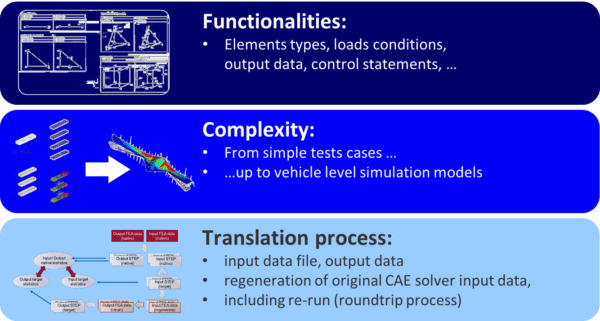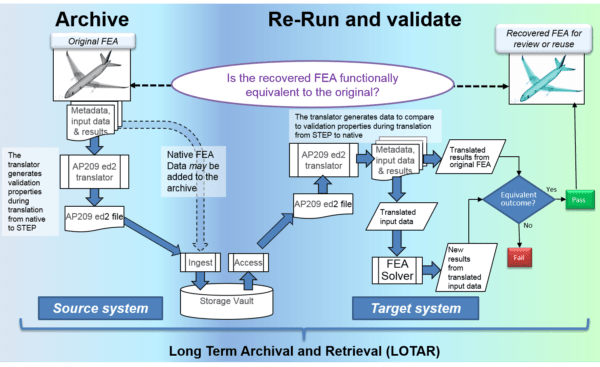CAE Interoperability Forum
The CAE-IF is a subgroup of the MBx-IF dedicated to the implementation and testing of the STEP AP209 standard. It focuses primarily on the Finite Element Analysis (FEA) in the Mechanical domain for Linear Static Analysis. Other domains (such as Dynamics analysis or CFD for instance) will be addressed later.
Current Status:
The CAE-IF has been active from 2016 through 2019 and is currently on hold, waiting for new user requirements. If you are interested in more details about this working group, or in actively participating, please contact:
- Jochen Boy, PROSTEP – jochen(dot)boy(at)prostep(dot)com
CAE-IF Roadmap
The CAE-IF roadmap has been set up considering 3 axes: functionality, complexity, and process:
- The first axis will explore all the elementary FEA functionalities, generally using unit test cases. The main functionalities have been listed hierarchically.
- When addressing the complexity axis, the test cases will combine different elementary FEA functionalities, with an increasing model size.
- The process axis will explore different parts of the “round-trip process”, until being able to run the overall process.
CAE-IF User Group
Regarding the CAE-IF, the role of the user group has traditionally been taken by the LOTAR Engineering Analysis and Simulation (EAS) Workgroup. It is mainly in charge of :
- Defining business scenarios.
- Prioritizing functionalities to be tested and define/update the CAE-IF roadmap.
- Defining test cases and validation criteria.
The “round-trip process” (as represented hereafter) is the first business scenario to be considered, applied to a vehicle level model, in the context of the Long Term Archive and Retrieval (LOTAR) needs. It has been tested successfully in the CAE-IF and was also publicly presented at the NAFEMS World Congress 2019.

